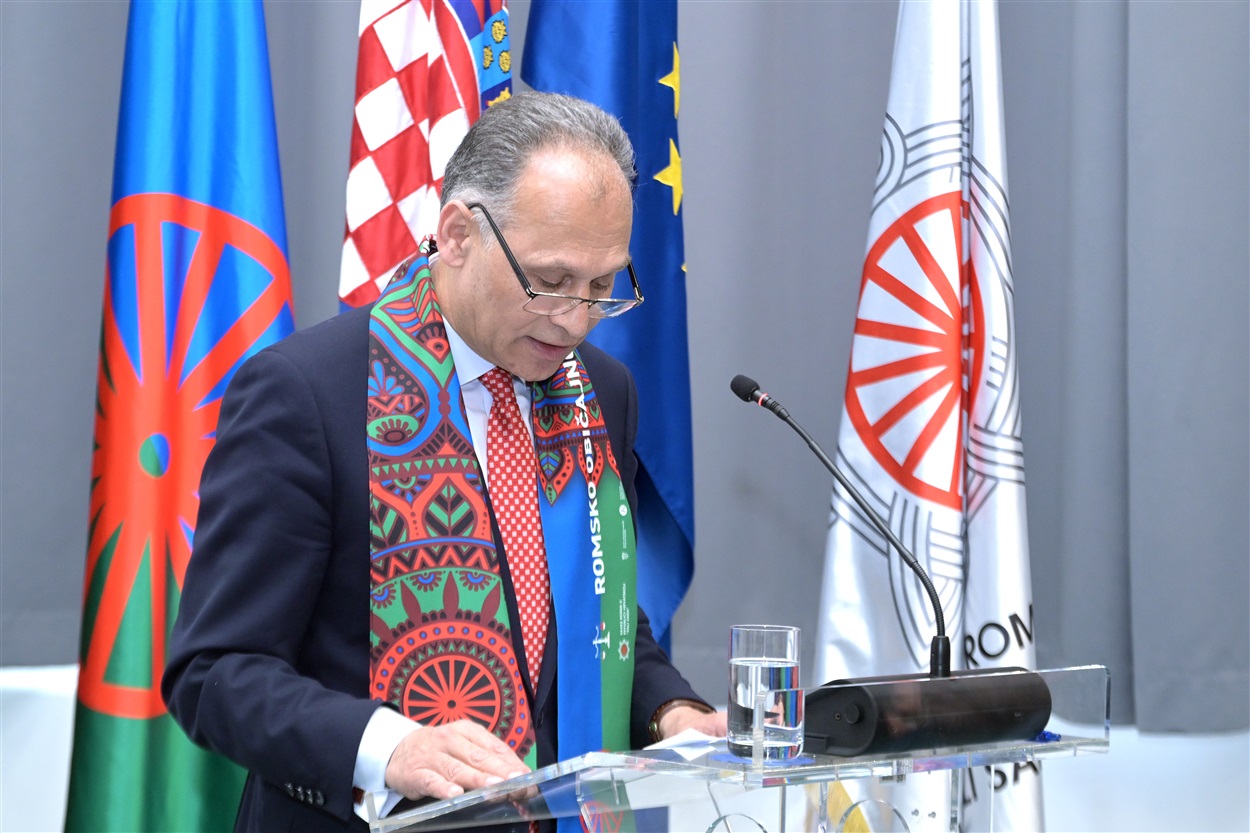
Zagreb - Members of the Croatian Parliament on Friday expressed support for an international initiative to designate 24 March as the World Day of Romani Customary Law and to protect this law as part of intangible cultural heritage.
The formal sponsor of the motion is the Sabor's Committee on Human Rights and the Rights of National Minorities, while the proposal itself originated from MP Veljko Kajtazi and the Croatian Romani Union "Kali Sara".
The initiative was inspired by an international conference held in the Croatian Parliament on 24 March, which the International Romani Union described as a turning point in the global recognition of Romani customary law.
MP Kajtazi, a member of the Committee, emphasised that the initiative does not aim to establish a parallel legal system, but solely to protect cultural heritage. He explained that Romani customary law is a body of legal norms rooted not in state legislation, but in community-accepted customs that reflect the Romani understanding of justice.
"It is the spirit of a people embodied in unwritten norms that have ensured their survival for centuries," Kajtazi said on Friday.
He added that customary law has long been a key mechanism for preserving cultural identity, maintaining social stability, regulating daily life, safeguarding core Romani values such as honour, respect for individuals and families, and the peaceful resolution of disputes.
Kajtazi also noted that during the Committee's deliberations it was made clear that no customs that are discriminatory or in conflict with the Croatian Constitution, national laws or international human rights standards would be protected.
"Our aim is to protect Romani customary law as intangible cultural heritage, in line with UNESCO criteria," he said.
The initiative received broad support across ruling and opposition parties, though opposition MPs used the opportunity to highlight the ongoing discrimination and negative stereotypes faced by the Roma in Croatia.
Sanja Bježančević from the opposition Social Democratic Party (SDP) said that nurturing the customs and legal traditions of the Romani community is absolutely necessary, but only if it does not infringe on fundamental human rights and freedoms, especially the rights of children, women and other vulnerable groups within the community.
She warned that practices such as child or underage marriages, social exclusion and gender inequality are still present within the Romani community today.
Baksa: Another date won't change reality faced by Roma
While supporting the proposed initiative, Ivica Baksa (Independent Platform North) stated that adding another commemorative date to the calendar would not change the harsh reality in which most members of the Romani community live.
He criticised Veljko Kajtazi, who has for years represented the Romani minority, claiming that during his term there have been many initiatives, speeches and conferences, but very few concrete and sustainable results on the ground.
In response, Kajtazi pointed out that thanks to initiatives such as the World Day of the Romani Language, the Romani community now has access to a master's programme in Romani Studies at the Faculty of Humanities and Social Sciences in Zagreb. He also noted that in Međimurje County, from which Baksa hails, not a single local government unit has an action plan for addressing Romani issues in education and housing.